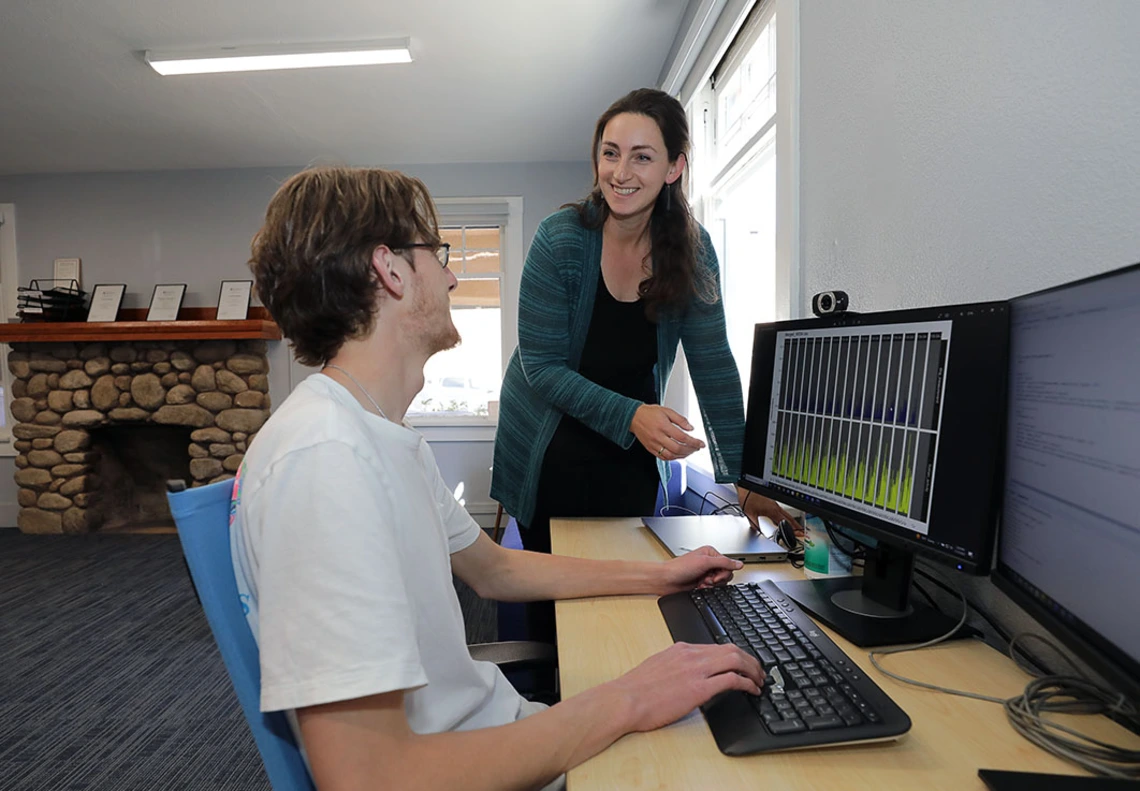Post-Doctoral Programs

We offer a range of postdoctoral positions, including roles in human-animal interaction research. Postdoctoral associates work closely with faculty mentors and contribute to innovative, funded studies that advance their chosen career path.
Residency & Intern Programs
One Health Residency
The University of Arizona College of Veterinary Medicine offers a three-year One Health/Veterinary Public Health Residency designed for graduate veterinarians seeking advanced, interdisciplinary training in veterinary public health. Residents gain hands-on experience in areas such as zoonotic disease prevention, epidemiology, and One Health leadership, while completing a Master of Public Health degree through the University of Arizona College of Public Health. The program prepares participants for the American College of Veterinary Preventive Medicine (ACVPM) board certification and provides broad experiential learning to support diverse career paths.
Candidates must hold a DVM or equivalent degree and be enrolled in or accepted to the MPH program; relevant experience in veterinary public health is preferred. This residency offers outstanding benefits and a unique opportunity to build expertise at the intersection of animal, human, and environmental health.
Questions? Reach out to Dr. Jennifer Wishnie VPHResidency@arizona.edu.
Learn More About the One Health Residency
Shelter Medicine Residency & Internship
The University of Arizona College of Veterinary Medicine, in partnership with the Arizona Humane Society, is offering a one-year Shelter Medicine Internship and a three-year Shelter Medicine Residency.
Residency
The three-year ABVP-approved program is designed for veterinarians seeking advanced training in the unique field of shelter medicine. Residents gain hands-on experience in medical and surgical care for shelter animals, outbreak investigations, population health management, and community outreach—including spay/neuter clinics, wellness programs, and disaster response—while collaborating with veterinary colleges, municipal, and nonprofit shelters across Arizona.
Candidates must have a DVM or equivalent, Arizona licensure or eligibility, and at least one year of relevant experience or internship training. The program offers mentorship from board-certified specialists, access to state-of-the-art facilities, a $120,000 annual salary with comprehensive benefits, and full support for ABVP Shelter Medicine board certification.
Internship
This one-year internship opportunity provides hands-on experience in medical and surgical care for shelter animals, outbreak investigations, population health management, and community outreach—including spay/neuter clinics, wellness programs, and disaster response—while collaborating with veterinary colleges, municipal, and nonprofit shelters across Arizona.
Candidates must have a DVM or equivalent and Arizona licensure or eligibility. The program offers mentorship from board-certified specialists, access to state-of-the-art facilities, a $100,000 annual salary.
PhD and Postdoctoral Pathways
PhD students with an interest in human-animal interaction benefit from close mentorship by Arizona CVM faculty while pursuing their degrees through the Psychology program. Postdoctoral associates can also engage in interdisciplinary research in collaboration with the Psychology department. To learn more about current opportunities, please visit the lab websites for available listings.
Summer Research Program
Are you an incoming Doctor of Veterinary Medicine student looking to enhance your career in research? Discover how our veterinary scholar summer research program can offer exceptional learning opportunities while preparing you for our DVM program.
